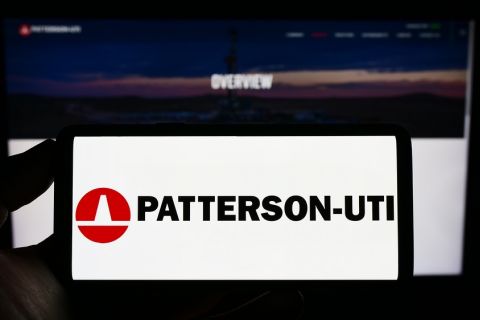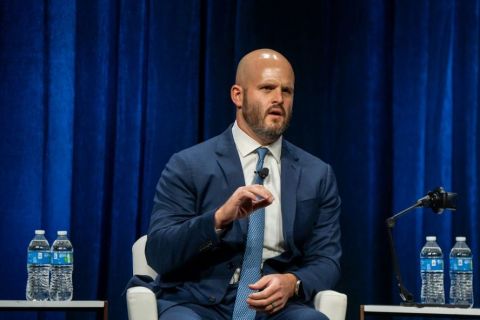During several oil and gas investment conferences held this spring, in addition to touting individual company financial results, many executives talked about the aftershocks of the Enron Corp. collapse. Many sought to reassure investors that their balance sheets were healthy, relatively debt-free and easy to understand. But two prominent speakers at a recent gathering brought new observations to bear on the topic, and they suggested the hype has gotten way out of hand. "The media clutter is quite deep. It's time for a little perspective-we all need to step back and take a breather. It is not okay to equate Enron with the whole energy industry," said Ken Hersh, managing director of Natural Gas Partners, at the Oil & Gas Investment Symposium sponsored by the Independent Petroleum Association of America (IPAA) in New York. Hersh said his aim was to turn all the attendees into ambassadors for the energy industry. "Enron did not fail because of a systemic problem in the energy industry or because of hedging, or because of off-balance-sheet partnerships, or donations to political parties. It failed because enormous amounts of borrowed money were lost on bad investments...reduced access to capital and reduced confidence choked it off. It really was a case of failed corporate leadership." Hersh said it is excusable that Enron lost money in various noncore businesses such as broadband and water-after all, that is what risk-taking in business is about. All progress involves risk-taking, which must lead to both success and failure if free markets are to work, he reminded the audience. "The fact that employees and directors owned a lot of stock in Enron was not a negative per se, as it aligned their interests with those of investors, creating a lot of wealth and value in the process during the 1990s. "But you can't legislate morality," said Hersh. "What I fear now is that we'll have unintended restrictions on the capital formation process. Risk and return cannot be decoupled and new market participants cannot be discouraged." Hersh asked the key question: Where is the public outrage over the Internet and telecom bubbles, which have caused far more people to lose their jobs and pensions, and far more investors to lose much more money than Enron did. "K-Mart has laid off 22,000 people and ...Enron laid off 7,000 or 8,000. Lucent, AT&T, Cisco and JDS Uniphase combined have lost more than $1 trillion in market value, while Enron has lost $60 billion-where is the outrage over that?" Generally agreeing with his assessments was Prudential Securities' natural gas and energy merchant analyst M. Carol Coale, who spoke the following day. "The media is having a greater influence on investor psychology now than the analysts' reports. It started last year with the California energy crisis and gained momentum with Enron, and it is continuing. "Investors are very skittish and concerned with basics like liquidity. Management credibility is at the forefront. They have zero tolerance, and they are asking, 'Do energy traders and merchants actually make money or is it a zero-sum game?'" -Leslie Haines
Recommended Reading
From Restructuring to Reinvention, Weatherford Upbeat on Upcycle
2024-02-11 - Weatherford CEO Girish Saligram charts course for growth as the company looks to enter the third year of what appears to be a long upcycle.
TechnipFMC Eyes $30B in Subsea Orders by 2025
2024-02-23 - TechnipFMC is capitalizing on an industry shift in spending to offshore projects from land projects.
Patterson-UTI Braces for Activity ‘Pause’ After E&P Consolidations
2024-02-19 - Patterson-UTI saw net income rebound from 2022 and CEO Andy Hendricks says the company is well positioned following a wave of E&P consolidations that may slow activity.
ProPetro Reports Material Weakness in Financial Reporting Controls
2024-03-14 - ProPetro identified a material weakness in internal controls over financial reporting, the oilfield services firm said in a filing.
Baker Hughes Awarded Saudi Pipeline Technology Contract
2024-04-23 - Baker Hughes will supply centrifugal compressors for Saudi Arabia’s new pipeline system, which aims to increase gas distribution across the kingdom and reduce carbon emissions





